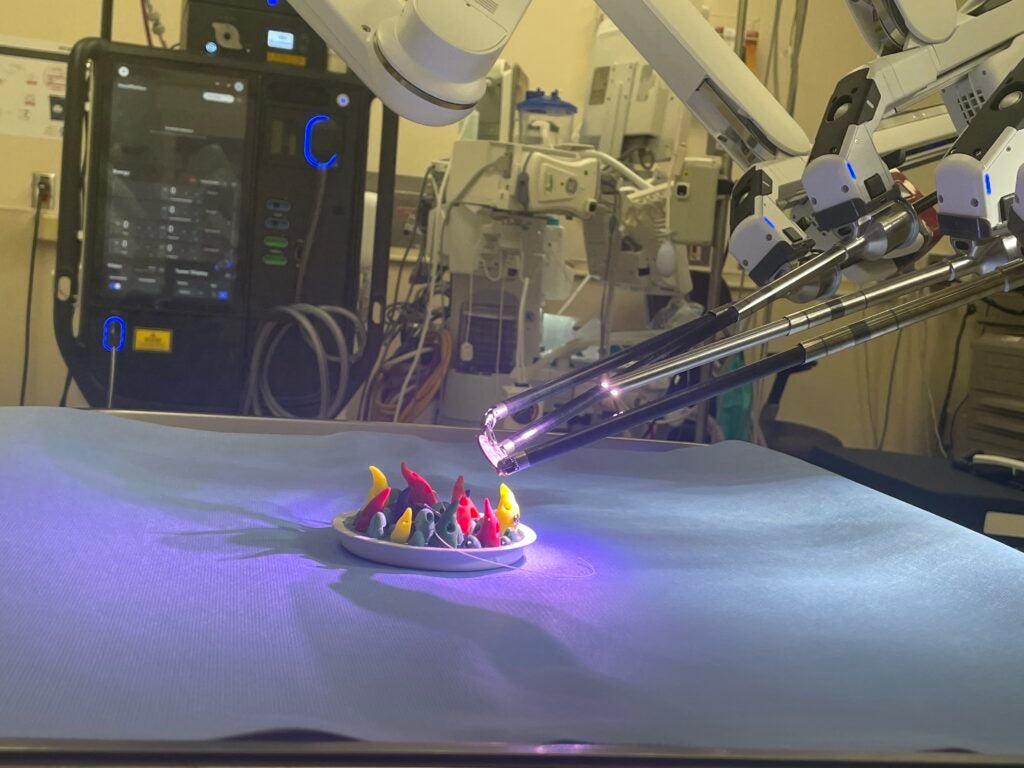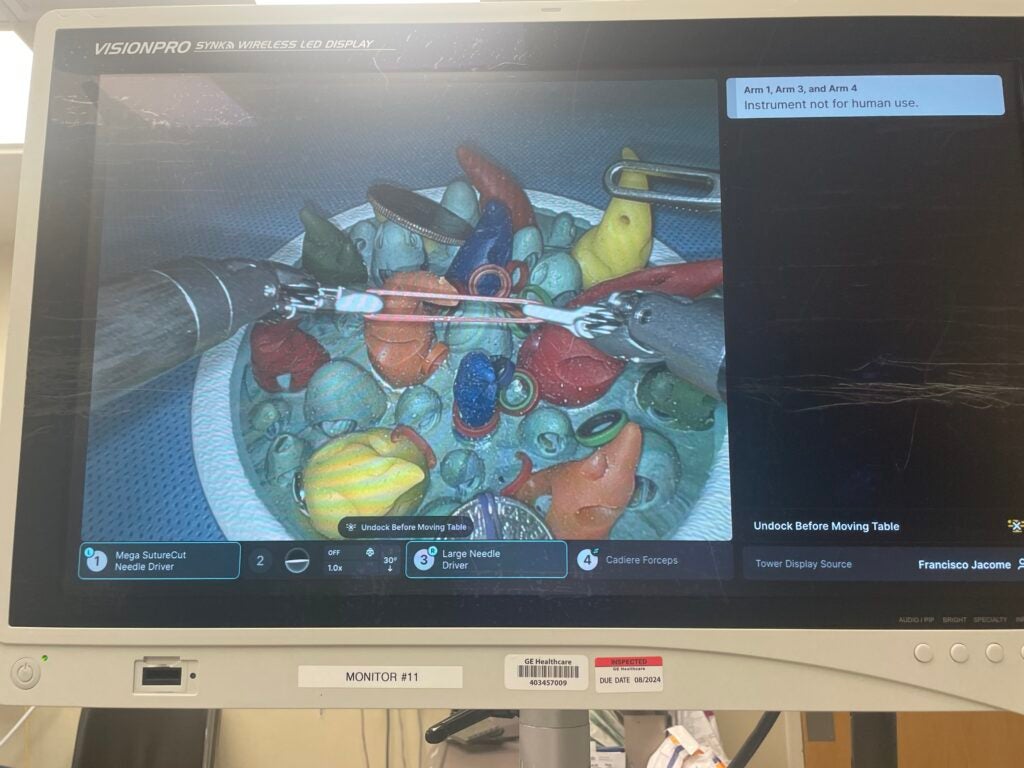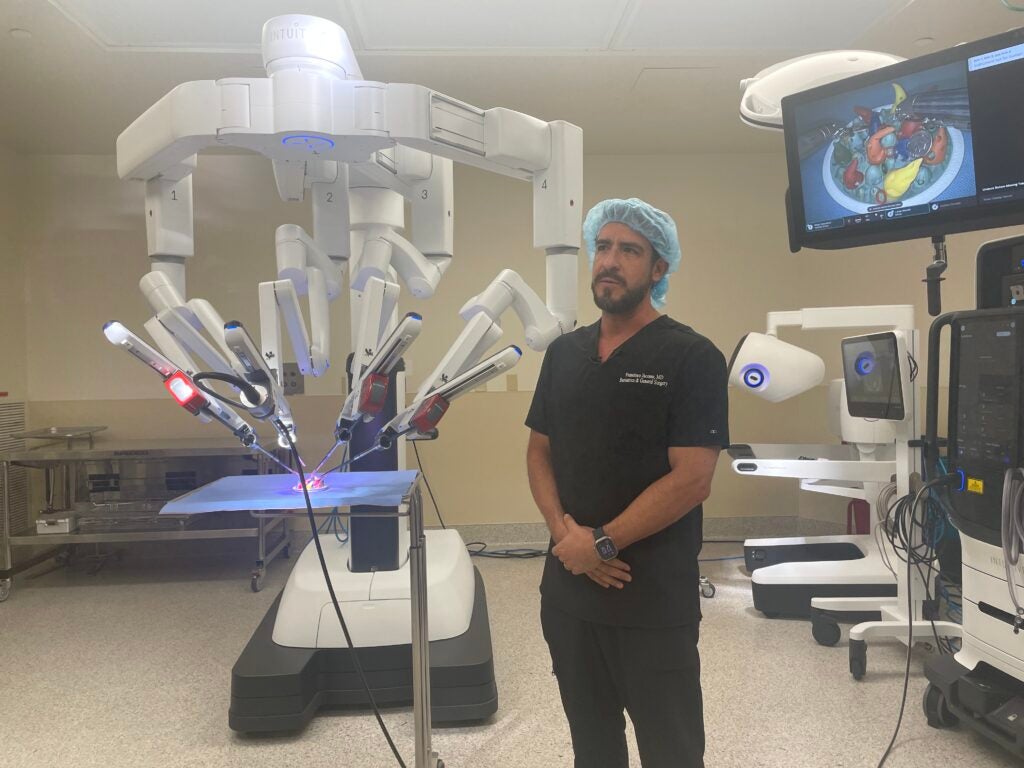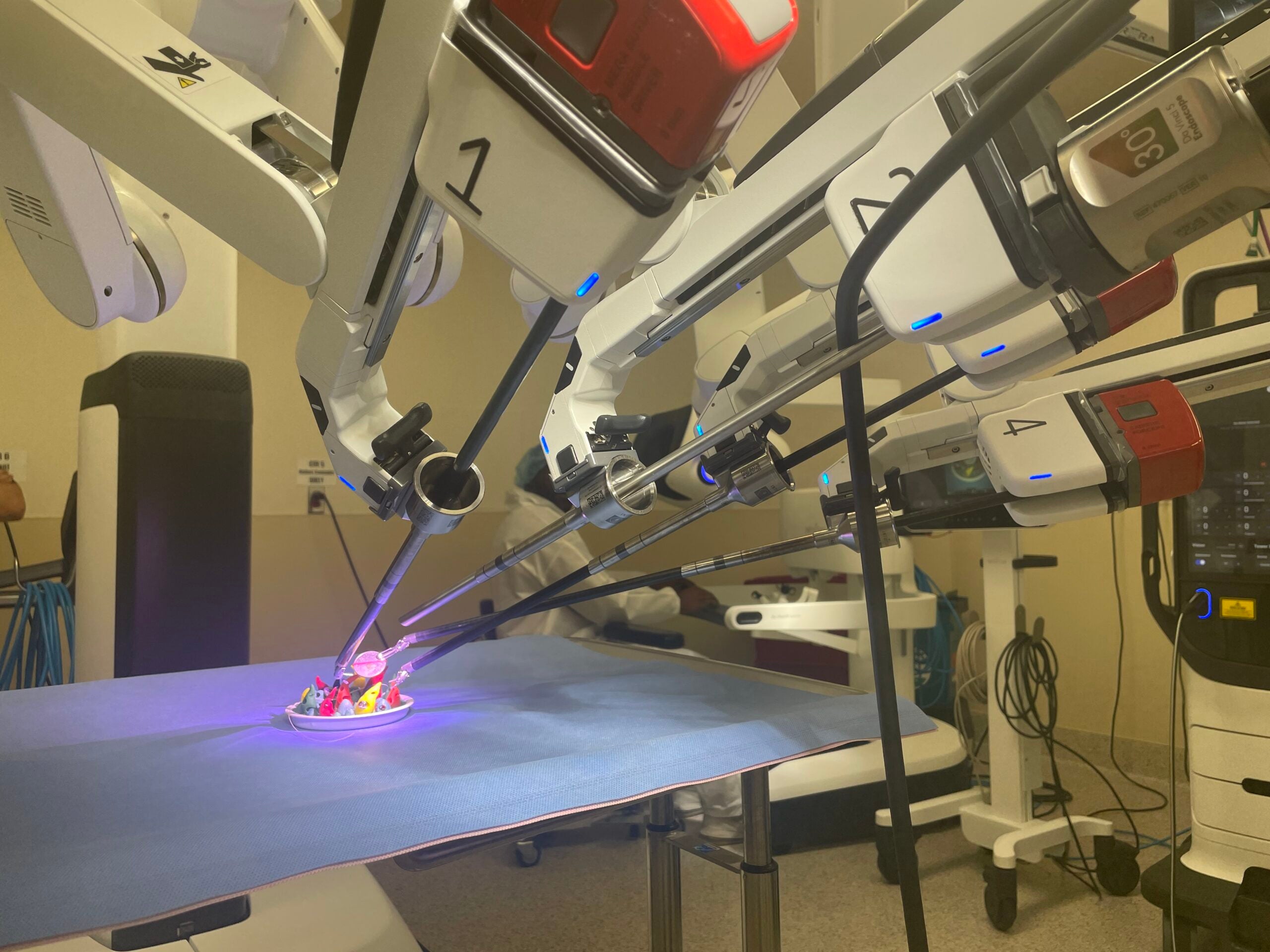The latest in surgical technology has arrived at the CSRA. On June 20, Doctors Hospital became the first hospital in the area to deploy the new tech when Dr. Francisco Jacome performed surgery with the hospital’s new Da Vinci 5 robotic surgical system.
MORE: Former Augusta recreation director surfaces in south Georgia job search

Developed by Sunnyvale, Calif.-based tech company Intuitive, the system is an upgrade from the previous Da Vinci Xi model, and includes advancements such as optimized vision, 10,000 times the computing power of the earlier system, and a novel force feedback to precisely detect and reduce the amount of force used.
“It keeps closing the gap between surgery that we do with our hands versus robotic surgery that is done with these parts,” said Jacome, who specializes in bariatric surgery. “Now these arms have the ability to give us feedback on the efficiency of how much force we’re actually applying on the tissue.”
A surgeon operates the four instrumental robotic arms with attached tools from a console roughly six feet from the operation platform, with, footpads and controllers a special headset that produces high-resolution 3D images with stereo vision.
“They’re able to see depth perception,” explained Micah Enloe, executive clinical sales representative for Intuitive. “So that’s what adds to the precision, as they can see in 3D.”
Training to use robotic system entails a rigorous pathway of courses and virtual modules to cultivate experience with the technology. Training surgeons practice with the instrument, completing these modules before performing surgery under supervision.

Jacome notes that surgeons, due to adherence to the medical charter of doing no harm, are notoriously slow to adapt to changes in operations, but that robotic surgery is steadily becoming the standard means by which up and coming surgeons are trained.

“This is becoming the gold standard,” said Dr. Jacome, stating that doctors were once only trained with open surgery before laparoscopic surgery—operations in the abdomen or pelvis using a camera—developed in the mid-1980s. “Right now residents are training on laparoscopic surgery, robotic surgery and some open surgery as well. So as the technology advances, things will change and people will get trained on the new type of technology.”
Skyler Q. Andrews is a staff reporter for The Augusta Press. Reach him at skyler@theaugustapress.com.









